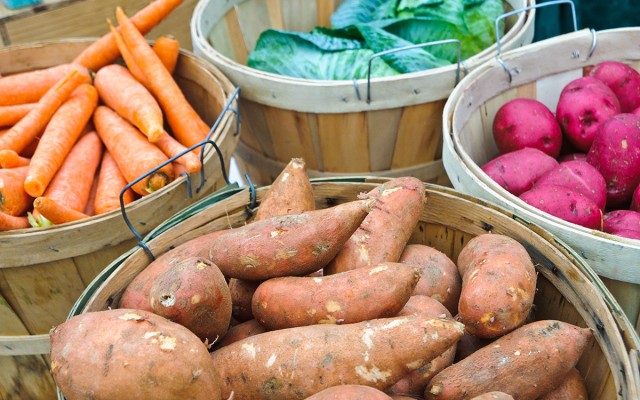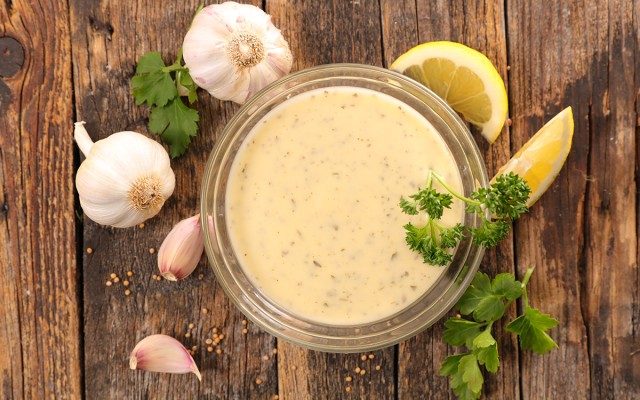Can Processed Foods Be Healthy? Navigating Our Convenience Food Environment

According to a study published in the British Medical Journal, Americans get nearly 60 percent of our calories from highly processed foods—exactly what we’re not supposed to be eating.
Fresh food is good, refined food is evil, right? Not quite.
Yes, there’s strong evidence supporting the idea that eating a whole-foods, plant-based diet will keep us healthier in the long run. Yet a potential downside of this way of eating is that it takes time, knowledge, and motivation to keep it going in our busy lives, considering how readily available highly processed foods are. Though it’s always best to choose whole, locally grown foods in season, does that mean there is never room for canned or frozen foods?
In a society where refined food is so prevalent, a bit of skill and practice can help you choose quality foods that are tasty, nutritious, and, yes, even convenient. Selecting minimally processed foods and reading labels to find nutrient-dense options can help you navigate your way through the supermarket.
Just what is processed food?
Anything done to food during its journey from the farm to your plate is considered processing. This includes canning, cooking, freezing, milling, dehydrating, and packaging. The problem is that many of these processes reduce the nutritional content of the food and add things that most of us would rather avoid, such as salt, synthetic chemicals, and sugar—90 percent of our sugar intake comes from what’s known as ultra-processed food.
What does that mean, exactly? Here’s a quick guide:
- Minimally processed foods are single-items foods, such as canned beans, canned or frozen fish, frozen fruits and vegetables, and organic peanut butter that contain just a few, simple additives.
- Moderately processed foods include condiments, such as salsa, hoisin sauce, chili, or soy sauce, that can fit into an overall whole-foods meal.
- Ultra-processed foods are the nutritionally poor, high-calorie, low-nutrient, inflammation-producing choices; think fast food, fried food, frozen pizzas, TV dinners, and most packaged cookies, crackers, and chips.
Here are some terms that may indicate higher-quality options, independent of the degree of refinement:
- USDA Certified Organic: Grown to quality specifications, including soil quality, animal raising, freedom from synthetic additives, and pest and weed control
- Certified Humane: Raised with specific standards of space and treatment considered humane
- Grass-Fed: Suggests that the animal was fed as nature intended, which can result in a nutritionally superior product. Look for seals such as “American Grass-Fed” or “PCO 100% Grass-Fed.”
Discerning Refinement
Read the labels of the packaged foods you buy and, in particular, watch out for the following:
- Added sugar: Many refined foods contain added sugar, high-fructose corn syrup, and a variety of other sweeteners devoid of nutrition. Make sure to look at the amount of carbohydrates and sugar; a standard serving of carbohydrate is about 15 grams, and ideally there’s no added sugar. Packaged sweets and beverages tend to be loaded with added sugar.
- Refined grains: Low in nutrients and fiber, refined grains, such as white flour, act a lot like sugar in the body. Milling whole grains removes the bran (which contains fiber) and the germ (which contains nutrients). Favor 100 percent whole grains and grain products.
- Trans fats: Hydrogenated oils contain trans fats, which have been shown to increase the risk of heart disease. Trans fats are made when oils are hydrogenated to make them act more like solid fats. Check the labels of packaged baked goods for trans fats.
- Sodium: High sodium intake has been linked to heart disease, and most of the sodium in our diet comes from canned and processed food. As a rule of thumb, look for foods that list less than 300 mg sodium per serving. Watch the sodium in canned beans, soups, and meats or fish.
The Bottom Line
Using minimally and (less often) moderately processed foods within an overall whole-foods diet can hit the sweet spot of health and convenience. When using canned or frozen foods, ask yourself, Does it help me follow a whole-foods, plant-based diet? If so, green light.
The food industry offers a cornucopia of choice, both healthy and not. Quality matters. There are small companies making delicious artisanal options, and some of the big food players are also introducing higher-quality versions of old favorites. The food industry responds to what we ask for. We can all be food advocates—consumers demanding simple, wholesome foods, prepared humanely and sustainably.
Ultimately, the diet you choose represents a series of relationships. You are in relationship with farmers, the people along the way who handle the food, and your local market. When you choose any food, you are making a decision about what passes into your body. I suggest that you choose the highest-quality food you can find and afford, and then focus on enjoying whatever has come your way. Do your best, then worry less and enjoy more as you receive the gifts of the earth and all those involved in your nourishment.
Annie B. Kay, MS, RDN, E-RYT 500, C-IAYT, is an author, nutritionist, Kripalu faculty member, and important voice in whole-foods nutrition and yoga.
Full Bio and Programs
